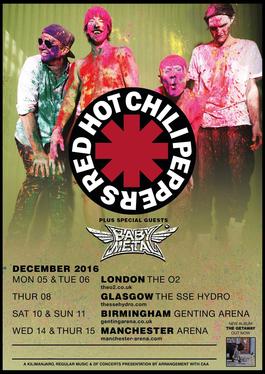
Folklore is the body of expressive culture shared by a particular group of people, culture or subculture. This includes oral traditions such as tales, myths, legends, proverbs, poems, jokes, and other oral traditions. This also includes material culture, such as traditional building styles common to the group. Folklore also encompasses customary lore, taking actions for folk beliefs, and the forms and rituals of celebrations such as Christmas, weddings, folk dances, and initiation rites.

A joke is a display of humour in which words are used within a specific and well-defined narrative structure to make people laugh and is usually not meant to be interpreted literally. It usually takes the form of a story, often with dialogue, and ends in a punch line, whereby the humorous element of the story is revealed; this can be done using a pun or other type of word play, irony or sarcasm, logical incompatibility, hyperbole, or other means. Linguist Robert Hetzron offers the definition:
A joke is a short humorous piece of oral literature in which the funniness culminates in the final sentence, called the punchline… In fact, the main condition is that the tension should reach its highest level at the very end. No continuation relieving the tension should be added. As for its being "oral," it is true that jokes may appear printed, but when further transferred, there is no obligation to reproduce the text verbatim, as in the case of poetry.

Charles Montgomery Plantagenet Schicklgruber "Monty" Burns, usually referred to as Mr. Burns or C. Montgomery Burns, is a recurring character in the animated television series The Simpsons, voiced initially by Christopher Collins and currently by Harry Shearer. He is the mostly evil, devious, greedy, and wealthy owner of the Springfield Nuclear Power Plant and, by extension, Homer Simpson's boss. He is assisted at almost all times by Smithers, his loyal and sycophantic aide, adviser, confidant, and secret admirer. He is between 81 and 120 years old, though sometimes it's implied he's much older.
A hobgoblin is a household spirit, appearing in English folklore, once considered helpful, but which since the spread of Christianity has often been considered mischievous. Shakespeare identifies the character of Puck in his A Midsummer Night's Dream as a hobgoblin.
Jocelyn Henry Clive 'Harry' Graham was an English writer. He was a successful journalist and later, after distinguished military service, a leading lyricist for operettas and musical comedies, but he is now best remembered as a writer of humorous verse in a style of grotesquerie and black humour.
"Miss Susie", also known as "Hello Operator", "Miss Suzy", "Miss Lucy", and many other names, is the name of an American schoolyard rhyme in which each verse leads up to a rude word or profanity which is revealed in the next verse as part of an innocuous word or phrase. Originally used as a jump-rope rhyme, it is now more often sung alone or as part of a clapping game. Hand signs sometimes accompany the song, such as pulling on the bell in the first verse or making a phone gesture in the second.
A children's song may be a nursery rhyme set to music, a song that children invent and share among themselves or a modern creation intended for entertainment, use in the home or education. Although children's songs have been recorded and studied in some cultures more than others, they appear to be universal in human society.
An elephant joke is a joke cycle, almost always an absurd riddle or conundrum and often a sequence of such, that involves an elephant. Elephant jokes were a fad in the 1960s, with many people constructing large numbers of them according to a set formula. Sometimes they involve parodies or puns.

The American adult animated sitcom Family Guy has been the target of numerous taste and indecency complaints. The show is known to include offensive jokes including racial humor and violent, gory, and disturbing images.

"The Arkansas Traveler" is a folk song from the mid-19th century popularized by American singer and guitarist Mose Case. It is based on the composition of the same name by Sandford C. Faulkner. The score was first published by W. C. Peters in 1847 under the name "The Arkansas Traveller and Rackinsac Waltz". It was Arkansas' state song from 1949 to 1963, and the state historic song since 1987. The song has many versions, recorded by many people, and it has also inspired the creation of the children's song, "baby bumblebee" which shares the same tune.
Dead baby jokes are a joke cycle reflecting dark comedy. The joke is presented in riddle form, beginning with a what question and concluded with a grotesque punch line answer.
"Shortnin' Bread" is an American folk song dating back at least to 1900, when James Whitcomb Riley published it as a poem. While there is speculation that Riley may have based his poem on an earlier African-American plantation song, no definitive evidence of such an origin has yet been uncovered. A "collected" version of the song was published by E. C. Perrow in 1915. It is song number 4209 in the Roud Folk Song Index.

Bill Taft is an American rock musician living in Atlanta, Georgia.

"'97 Bonnie & Clyde" is a song by the American rapper Eminem. The song appears on the Slim Shady EP and The Slim Shady LP. Eminem recorded a prequel for The Marshall Mathers LP, "Kim". The song was covered by Tori Amos on her 2001 album of gender-swapped covers, Strange Little Girls. In the song, Eminem talks to his daughter whilst taking her to the pier to throw his wife, Kim, in the sea. He speaks to his daughter Hailie in a baby like fashion But still has a dark undertone.
This is a list is of music videos directed by Hype Williams.
"Miss Lucy had a baby...", also known by various other names, is an American schoolyard rhyme. Originally used as a jump-rope chant, it is now more often sung alone or as part of a clapping game. It has many variations, possibly originating from it, or from its predecessors.

The Getaway World Tour was a concert tour by American rock band Red Hot Chili Peppers that was in support of their eleventh studio album, The Getaway which was released on June 17, 2016. It marked the first time since June 2014 that the band has toured. The tour began with benefit shows and North American festival dates in February 2016 followed by a summer festival tour with dates in Europe, Asia and North America starting in May 2016 and ending in August 2016. The headlining tour to support the album began in Europe in September 2016 and lasted until the end of the year with the North American tour beginning in January 2017 and concluded in July 2017. Another European leg and dates in South America followed along with rescheduled shows and festival dates in North America in October 2017 to wrap up the tour. The band had festival dates in March 2018 for South America but they were not considered part of this tour. It was also the band's last tour with their guitarist Josh Klinghoffer before his departure from the band in late December 2019, as their previous guitarist John Frusciante rejoined the group at that time.

Kick-Ass – The Dave Lizewski Years is a creator-owned comic book series written by Mark Millar and illustrated by John Romita Jr. The first instalment of the Hit-Girl & Kick-Ass franchise, it was initially published by Marvel Comics under the company's Icon imprint and republished under Image Comics. Set in the Millarworld, the series primarily tells the story of Dave Lizewski, a teenager who sets out to become a real life superhero. His actions are publicized on the Internet and inspire other people. He gets caught up with ruthless vigilantes Big Daddy and Mindy "Hit-Girl" McCready, who are on a mission to take down the Genovesecrime family. Two stand-alone sequel series, Hit-Girl and Kick-Ass – The New Girl, respectively following Mindy and new villain protagonist Patience Lee, began publication in February 2018, before jointly concluding with the crossover miniseries Kick-Ass vs. Hit-Girl in March 2021. A further crossover, Big Game, was published from July to November 2023, following a now mid-20s Mindy as she teams up with Kingsman agent Eggsy Unwin against Wesley Gibson, while Dave is granted superpowers by the Magic Order.
Little Willie rhymes are light verses including an indifferent or cheerfully inappropriate response to a gruesome act of violence in a quatrain form attributed to Harry Graham (1874-1936). The earliest was included among the Ruthless Rhymes for Heartless Homes published in 1898 under Graham's pen name Col. D. Streamer while he was serving in the Coldstream Guards.
Billy, in one of his nice new sashes,
Fell in the fire and was burnt to ashes;
Now, although the room grows chilly,
I haven’t the heart to poke poor Billy.









